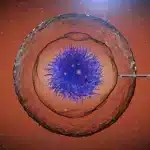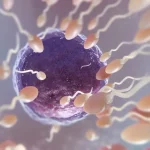
Male infertility is a common cause of difficulty in conceiving, affecting about 40% of all infertile couples. Understanding the factors that can negatively impact sperm health is crucial for couples trying to conceive. This report will delve into the top 10 sperm killers that can affect sperm quality and overall male fertility.
1. Smoking
Smoking is a significant factor that affects male fertility. It introduces oxidative stress to the sperm, damaging the DNA and reducing their swimming capacity. The sperm produced in the testicle is exposed to oxidative stress during its production and passage, potentially leading to lower sperm counts and impaired motility, making fertilization difficult.
2. Alcohol
Excessive alcohol intake can increase estrogen levels in the body, disrupting sperm production and sexual function. For optimal sperm health, it is advisable to limit alcohol consumption to one or two standard drinks once or twice a week.
3. Recreational Drugs
Recreational drugs, such as cannabis and anabolic steroids, can impair sperm function. Cannabis can affect sperm motility, making them less efficient swimmers. Steroids can disrupt the body’s natural testosterone production, ultimately reducing sperm production. These substances have a major impact on male fertility.
4. Excess Weight
Excess body fat, especially around the abdomen, is hormonally active and converts testosterone into estrogen. This hormonal imbalance can impair sperm production. Additionally, excess fat around the thighs and pubic area can increase the temperature in the scrotum, adversely affecting sperm production, as sperm thrive in cooler temperatures.
5. Poor Diet
A bad diet lacking in essential nutrients can have detrimental effects on sperm health. A diet rich in antioxidants and healthy fats, such as the Mediterranean diet, supports sperm production. Including foods that are high in essential oils and nutrients is necessary for maintaining optimal sperm health.
6. Past Medical Conditions
Certain past medical conditions can impact sperm production, including undescended testicles during childhood, hernias, surgeries in the pelvic area, sexually transmitted infections (STIs) like chlamydia and gonorrhea, or severe trauma (e.g., road traffic accidents). Such conditions can significantly affect a man’s fertility potential.
7. Acute Viral Illness
Acute viral illnesses, such as severe colds or mumps, can temporarily increase body temperature, disrupting sperm production. This effect can last up to 70-90 days, which corresponds to the sperm production cycle. It’s important to maintain good overall health to ensure stable sperm production.
8. Exposure to Chemicals or Toxins
Exposure to chemicals or toxins in certain industries can negatively affect sperm production. Harsh chemicals absorbed through the skin or inhalation can impair sperm quality, making it essential for men working in high-risk environments to take protective measures.
9. Advanced Paternal Age
Advanced age can impact male fertility. Studies have shown that sperm quality declines with age, increasing the risk of certain genetic conditions in offspring. While freezing sperm at a younger age is still a topic of debate, it’s advised to consider starting a family sooner rather than later if possible.
10. Hormonal Problems
Hormonal problems can result in erectile and ejaculation difficulties, creating challenges in achieving successful conception. In such cases, medical interventions, including medications or other treatments, may assist in overcoming these issues and improving sperm delivery during intercourse.
Understanding these factors is crucial for improving fertility. Lifestyle changes, medical interventions, and healthy habits can significantly boost sperm health, enhancing the chances of conceiving. For more information on male fertility tests and treatments, consider consulting a fertility specialist or booking a semen analysis.
If you have further questions about your fertility and IVF insurance coverage, it’s always best to contact your insurance provider or fertility clinic directly for detailed and personalized assistance. For personalized assistance with fertility insurance and financing, reach out to our team at EggDonors4All. Please do not hesitate to contact us at 212-661-7177 or info@eggdonors4all.com.

Dr. Kulsoom Baloch
Dr. Kulsoom Baloch is a dedicated donor coordinator at Indian Egg Donors, leveraging her extensive background in medicine and public health. She holds an MBBS from Ziauddin University, Pakistan, and an MPH from Hofstra University, New York. With three years of clinical experience at prominent hospitals in Karachi, Pakistan, Dr. Baloch has honed her skills in patient care and medical research.






Downloaded the 777egameapk and it’s pretty sweet. Easy to install and play on my phone. If you’re into mobile gaming, try 777egameapk.